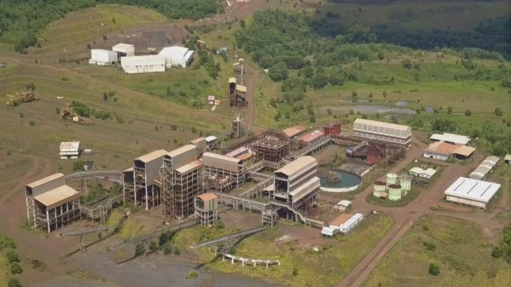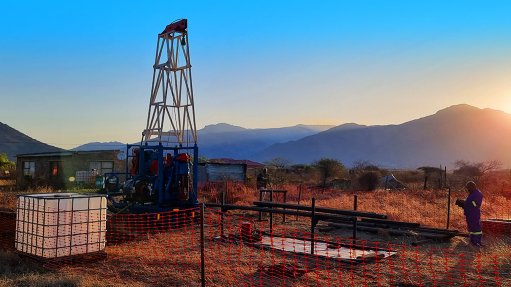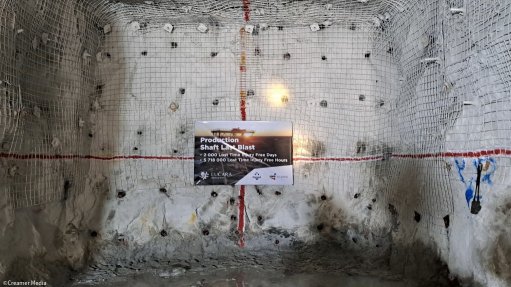Aspasa helps compile new material specifications for road builders
Surface mining industry association the Aggregate and Sand Producers Association of Southern Africa (Aspasa) has partnered with the Committee of Transport Officials (Coto) and other role-players to hammer out standards for different types of materials to be used on South African roads.
This will lead to quarrymen and miners of materials used in the construction of roads having a new set of specifications to be followed in order to supply national and provincial roads agencies, as well as all metros and municipalities with road construction materials.
Crushed aggregates and sand are key components in the manufacture of this type of infrastructure and the new Coto specifications effectively replace the previous, widely known Colto specification.
Industry veteran and the motivating force behind Aspasa’s submission to Coto, Barry Pearce, who also heads up Aspasa’s technical committee, says the new specifications have brought the industry together “like never before” and led to close cooperation between the roads agencies, engineers, materials suppliers and road contractors.
Material suppliers will now have a two-year trial period to implement, test, debate and refine the specifications before final acceptance, he explains.
All that remains, however, is for Aspasa members to read the specification in its entirety, especially Chapter 4, which deals directly with the supply of materials.
The move to Coto specifications also comes with a change in sieve sizes from imperial to metric International Organization for Standardisation sizes, which means quarries will need to make minor changes or possibly set about changing worn grizzlies and screens to match the relevant Coto sizes so as to conform to the new specifications.
The specifications also pay closer attention to the testing and acceptance of materials where they are mined and upon delivery and use.
“For now, this method of acceptance is required for materials sourced from approved borrow pits and requires engineers to test and accept crushed and stockpiled material at the borrow pit before delivery to site and further processing by the contractor,” Pearce explains.
Aspasa’s technical committee, however, suggests the same should apply to existing quarries with some minor adjustments where compliance with existing legislation is already in place such as health, safety and environment requirements.
“If this approach of approval of material is adopted, I think the Coto specifications will be as near to ‘perfect’ as we can get it right now,” Pearce comments.
He adds that on-site acceptance testing at the quarries will leapfrog one of the biggest hurdles in the supply of materials, namely exclusion clauses, which are used by materials suppliers as a measure of protection to ensure slight variances in quality of materials as specified are accounted for and can be excluded from the overarching specification as well as protection from claims where the material has been further processed on site by the contractor.
In other words, a clearer differentiation in where the material responsibility is passed to the contractor and the supplier is no longer responsible.
Despite not being a requirement of the new Coto specifications, these and other sticking points should be ironed out by the supplier and the engineers, road builders and transport agencies before any project is started, Pearce suggests.
He encourages Aspasa members to ensure the contractual work of specifying, on-site and laboratory testing, processes of delivery and on-site acceptance methods are agreed upon upfront and are legally documented to prevent issues arising into the future.
“Aspasa and our technical committees will continue to work with the agencies, the Road Pavement Forum, the South African Bitumen Association and other role-players to ensure Coto specifications are upheld and that our members are well-versed in the supply of in-spec materials.
“We will also continue to highlight any issues that may arise in the two-year implementation period,” concludes Pearce.
Article Enquiry
Email Article
Save Article
Feedback
To advertise email advertising@creamermedia.co.za or click here
Press Office
Announcements
What's On
Subscribe to improve your user experience...
Option 1 (equivalent of R125 a month):
Receive a weekly copy of Creamer Media's Engineering News & Mining Weekly magazine
(print copy for those in South Africa and e-magazine for those outside of South Africa)
Receive daily email newsletters
Access to full search results
Access archive of magazine back copies
Access to Projects in Progress
Access to ONE Research Report of your choice in PDF format
Option 2 (equivalent of R375 a month):
All benefits from Option 1
PLUS
Access to Creamer Media's Research Channel Africa for ALL Research Reports, in PDF format, on various industrial and mining sectors
including Electricity; Water; Energy Transition; Hydrogen; Roads, Rail and Ports; Coal; Gold; Platinum; Battery Metals; etc.
Already a subscriber?
Forgotten your password?
Receive weekly copy of Creamer Media's Engineering News & Mining Weekly magazine (print copy for those in South Africa and e-magazine for those outside of South Africa)
➕
Recieve daily email newsletters
➕
Access to full search results
➕
Access archive of magazine back copies
➕
Access to Projects in Progress
➕
Access to ONE Research Report of your choice in PDF format
RESEARCH CHANNEL AFRICA
R4500 (equivalent of R375 a month)
SUBSCRIBEAll benefits from Option 1
➕
Access to Creamer Media's Research Channel Africa for ALL Research Reports on various industrial and mining sectors, in PDF format, including on:
Electricity
➕
Water
➕
Energy Transition
➕
Hydrogen
➕
Roads, Rail and Ports
➕
Coal
➕
Gold
➕
Platinum
➕
Battery Metals
➕
etc.
Receive all benefits from Option 1 or Option 2 delivered to numerous people at your company
➕
Multiple User names and Passwords for simultaneous log-ins
➕
Intranet integration access to all in your organisation





















